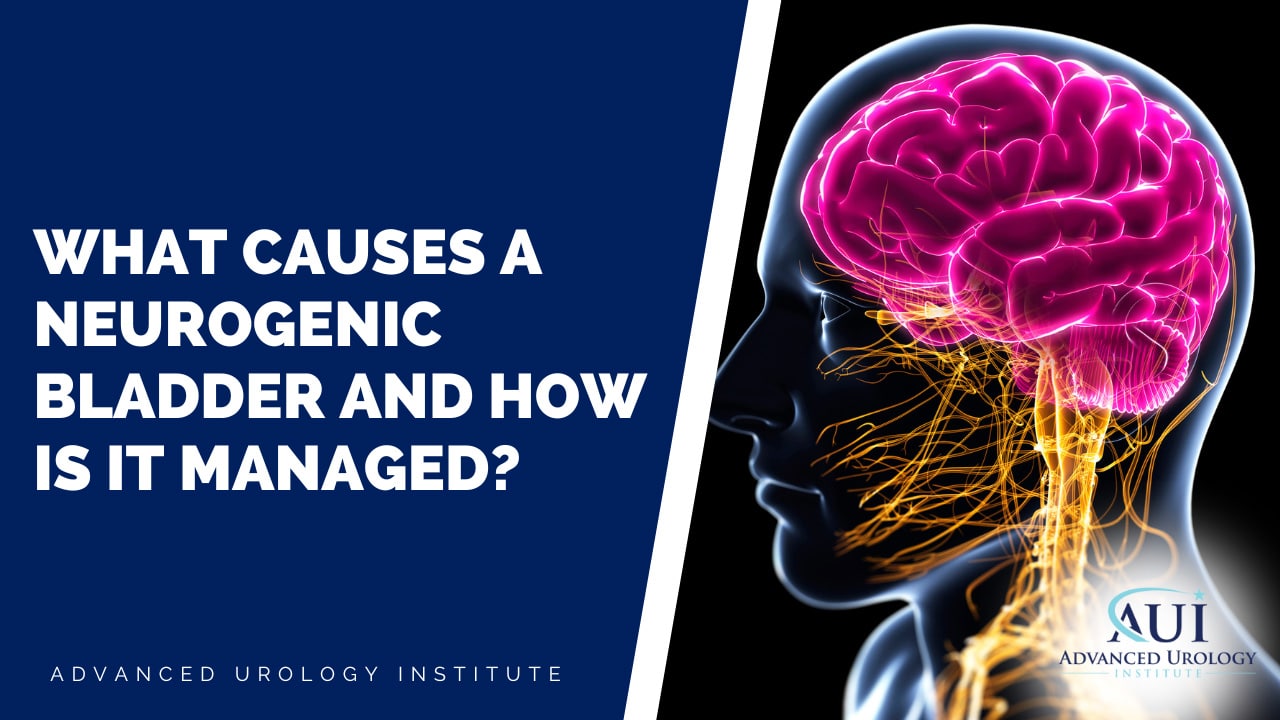What Causes a Neurogenic Bladder and How Is It Managed?
3 Key Takeaways:
- Neurogenic bladder refers to a lack of bladder control due to nerve damage, which disrupts communication between the brain and the bladder.
- Causes of neurogenic bladder include spinal cord injuries and nervous system disorders like Multiple Sclerosis, Parkinson’s Disease, and stroke.
- The management of neurogenic bladder can involve medications, catheterization, behavioral changes, surgical options, as well as lifestyle adjustments such as pelvic floor exercises, diet modification, and managing fluid intake.
 Neurogenic bladder: A term that once jumbled the minds now stands as a hurdle many of us have to cross. It refers to a lack of bladder control due to nerve damage, disrupting communication between the brain and the bladder. As we navigate this labyrinth of bladder control, it is essential to understand its causes, symptoms, and possible solutions.
Neurogenic bladder: A term that once jumbled the minds now stands as a hurdle many of us have to cross. It refers to a lack of bladder control due to nerve damage, disrupting communication between the brain and the bladder. As we navigate this labyrinth of bladder control, it is essential to understand its causes, symptoms, and possible solutions.
Causes of Neurogenic Bladder
Spinal Cord Injuries
Spinal cord injuries can severely impact nerve signals, disrupting the communication line between the brain and the bladder. From complete to incomplete injuries, anything that harms the spinal cord can leave us grappling with a neurogenic bladder.
Nervous System Disorders
Diseases that trigger havoc in our nervous system, such as Multiple Sclerosis, Parkinson’s Disease, and stroke, can also lead to a neurogenic bladder. These disorders cause significant nerve damage, compromising bladder control.
Symptoms of Neurogenic Bladder
Urinary incontinence, urinary retention, and frequent urination are the most common distress signals our bodies send us. Recognizing these symptoms promptly could mean the world in effectively managing a neurogenic bladder.
Diagnosis of Neurogenic Bladder
A thorough medical history assessment, physical examination, and diagnostic tests help in diagnosing a neurogenic bladder. From urine analysis to imaging tests and urodynamic studies, urologists employ a wide range of tools to zero in on the diagnosis.
Management of Neurogenic Bladder
Medications
Various medications, such as anticholinergic drugs, alpha blockers, and botulinum toxin injections, can provide some relief to the neurogenic bladder patients.
Catheterization
Both intermittent and indwelling catheterizations are viable options for individuals wrestling with neurogenic bladder, aiding in bladder control.
Behavioral Changes
Bladder training techniques and mindful fluid management can be instrumental in controlling the bladder.
Surgical Options
Bladder augmentation (cystoplasty) and urinary diversion are surgical interventions that can be sought if medications and behavioral changes alone do not suffice.
Lifestyle Tips for Neurogenic Bladder Patients
Practicing pelvic floor exercises, modifying diet, managing fluid intake, and maintaining a regular voiding schedule can make a world of difference in managing a neurogenic bladder.
Coping Strategies for Neurogenic Bladder Patients
Participation in support groups, seeking counseling services, and incorporating self-care practices into daily routines can bolster emotional and mental strength as individuals combat neurogenic bladder.
Conclusion
Navigating through a neurogenic bladder can be difficult, but with the right medical intervention and lifestyle adjustments, it can certainly be managed. It is vital to approach experienced urologists who specialize in the field and can provide comprehensive care.
As the largest urology practice in Florida, we, at Advanced Urology Institute, have dealt with a multitude of neurogenic bladder cases. Our seasoned urologists in FL are armed with knowledge, expertise, and the compassion necessary to help individuals take control of their bladder health. It’s time to break free from the shackles of neurogenic bladder and reclaim your life. Reach out to us today—we’re here to help.
References:
- “Neurogenic Bladder Treatment | UC San Diego Health.” https://health.ucsd.edu/care/urology/neurogenic-bladder/.
- “Anticholinergic Medications for Overactive Bladder – Healthline.” 18 Jul. 2016, https://www.healthline.com/health/overactive-bladder/anticholinergic-medications.
- “Bladder Problems & Dysfunction – National MS Society.” https://www.nationalmssociety.org/Symptoms-Diagnosis/MS-Symptoms/Bladder-Dysfunction.
- “Bladder Augmentation (Cystoplasty): Procedure & Recovery.” 6 Sep. 2023, https://my.clevelandclinic.org/health/treatments/15846-augmentation-cystoplasty-bladder-augmentation.

